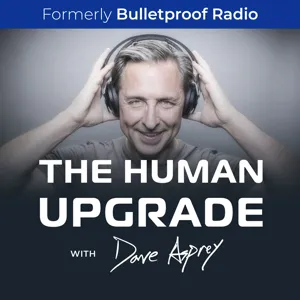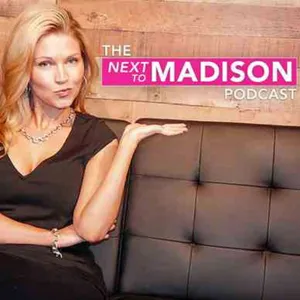Podcast Summary
Challenges can pave the way for growth and discovery: Even seemingly unfortunate events can lead to fulfilling careers through curiosity and determination
Even a seemingly unfortunate event, like a missed ski trip due to appendicitis, can lead to a fulfilling and successful career. Heather Smith's experience with appendicitis as a child did not deter her from becoming a scientist like her father. Instead, her curiosity about the organ that caused her illness led her to become a professor of anatomy and the editor-in-chief of a journal focusing on anatomy. This story serves as a reminder that challenges can pave the way for growth and discovery. For more resources and support for individuals with mental health conditions, visit we can thrive.org.
New discoveries about the appendix: The appendix, once thought to be a useless organ, now plays a role in our immune system and may help prevent diseases. Future advancements could lead to treating appendicitis without surgery.
The appendix, long considered a useless organ, has recently been found to have important functions in the human body. Located at the beginning of the large intestine, the appendix resembles a small worm and helps us in ways we're only now beginning to understand. Research suggests it plays a role in our immune system and may even help prevent certain diseases. The days of viewing the appendix as a potential killer with little benefit are over. In fact, future advancements could lead to preventing or treating appendicitis without the need for emergency surgery. During the podcast, listeners were reminded of the Tiny Desk Contest, where unsigned musicians submit their original songs for a chance to win a tiny desk concert and a tour with NPR Music. Capital One, the presenting sponsor, was highlighted for its VentureX card, offering unlimited double miles on all purchases. Integrative Therapeutics, another sponsor, was mentioned for its clinician-curated supplements now available on Amazon. To clarify, the appendix is a small organ, about the size of a pinky finger, that extends from the cecum, the first part of the large intestine. It is located roughly two-thirds of the way down from the line drawn between the navel and the anterior superior iliac spine.
The appendix: A reevaluated organ: New discoveries in the appendix's microanatomy and biofilms challenge the belief that it's a vestigial organ. Its adaptive functions have appeared independently in mammals, suggesting its importance.
The appendix, long considered a vestigial organ with no apparent function, is now being reevaluated due to new discoveries in its microanatomy and biofilms. This organ, which comes in different forms and sizes across various species, from humans with a vermiform appendix to marsupials and monotremes with a tiny one, has been found to serve adaptive functions. The evolution of the appendix has been studied across mammals, revealing that it has appeared independently multiple times throughout mammalian evolution. This finding suggests that the appendix serves a beneficial role, making it unlikely for the same structure to emerge repeatedly if it were not adaptive. Additionally, the misconception that the appendix is useless was perpetuated by Charles Darwin and the belief that humans can live without it. However, modern research has shed new light on the appendix's functions, challenging the long-held belief that it is a vestigial organ.
The appendix: More than just a vestigial organ: The appendix supports our immune system and acts as a reservoir for beneficial gut bacteria, making it an essential component of our digestive system.
The appendix, long considered a vestigial organ, is now understood to play a more significant role in our health than previously thought. It serves two primary functions: supporting the immune system and acting as a "safe house" for beneficial gut bacteria. The appendix's high concentration of immune tissue helps it fight off invading pathogens. Additionally, during gastrointestinal distress, the appendix may serve as a reservoir for beneficial bacteria, protecting them from being flushed out and allowing them to recolonize the gut once the distress passes. Despite these discoveries, the reasons why some people develop appendicitis remain a mystery, with hypotheses ranging from dietary factors to the hygiene hypothesis. Regardless, it's clear that the appendix is an essential component of our digestive system, contributing to both our immune defenses and the restoration of beneficial gut bacteria.
Hygiene Hypothesis and the Role of the Appendix: The Hygiene Hypothesis suggests that excessive sanitization can hinder immune system development. New research indicates that appendicitis might be treated differently in the future, focusing on antibiotics instead of surgery.
The hygiene hypothesis suggests that excessive sanitization may be hindering the proper development of our immune systems due to lack of exposure to a full range of pathogens. The appendix, with its high concentration of immune tissue, is one area where this issue manifests. Although it's possible to live without an appendix, it may have beneficial functions. New research indicates that appendicitis, currently treated with emergency surgery, might be approached differently in the future, with potential treatments like antibiotics that don't require removal. In an ideal scenario, we might prevent appendicitis altogether or find less invasive ways to treat it. From this line of research, we gain a deeper understanding of the importance of a balanced exposure to pathogens for a healthy immune system.
Exploring the hidden wonders of anatomy: New discoveries in anatomy reveal functions of overlooked structures and adaptations, enhancing educational resources.
The study of anatomy, despite being the study of the body, continues to reveal new and important information about variation, function, and micro-anatomical adaptations. Descriptive studies of exotic animals and small parts of our own bodies that have not been well documented are worthwhile pursuits. The discovery of new functions for structures like the appendix, which have been overlooked, highlights the importance of continued research in this field. This new information could potentially be incorporated into educational resources, such as children's games, to provide a more accurate and up-to-date understanding of anatomy.






